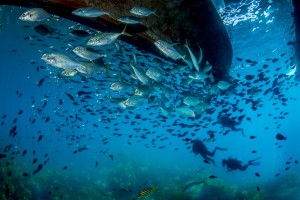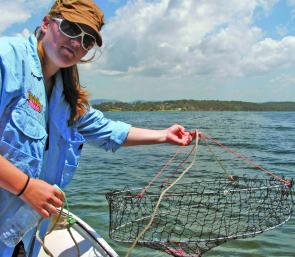
Deep Sea Fishing Tips
If you haven’t been deep sea fishing before, or if you haven’t gone in a while, you might want to get some deep sea fishing tips on how to make the best catch possible. Today’s article should help you figure out the best ways to catch a game fish while you’re deep sea fishing. We hope you’ll join us out on the Kona Fishing Charters after reading all the tips, since our charter is one of the best ways to go deep sea fishing (that’s tip number one). Call us at (808) 960-1424 to schedule your fishing charter with us here in Hawaii!
What is Deep Sea Fishing?
Deep sea fishing is when you go fishing off the shore in the deep waters. There should be at least 30 meters of depth. It is synonymous with offshore fishing, big game fishing, and sports fishing. An angler will be attempting to fish for a large open-ocean, big game species of fish as a fun challenge when deep sea fishing. It’s a fun adventure for any angler to attempt. The tips below should help it make your fun adventure a success!
11 Deep Sea Fishing Tips
- Work with Nature
Make sure to keep an eye on your surroundings and work with nature.
- Know what Fish School Together

Some game fish school with other game fish, and other game fish school with dolphins (which you do not want to catch). Tuna and dolphins often school together so make sure you don’t accidentally catch a dolphin when you’re aiming to catch a tuna!
- Look for Floating Wood or Debris
If you see any debris or floating wood, check it out! Large game fish often linger around debris and floating wood.
- Circle Hooks
Circle hooks are great for several reasons. One, there’s a higher hook up ratio guaranteeing that you have a good hook up ratio, and allowing you to catch more. Second, circle hooks are better for the fish because they hook the lip not the gut. So if you’re trying to do catch and release, that makes this option even better.
- Reef fishing
Smaller fish live near reefs making those locations really great fishing hot spots, for both you and the big game fish you’re aiming for. Big game fish go there for a snack quite often so you’re bound to catch something great if you wait it out at a reef.
- Don’t get Sea Sick!
If you’re the type who often gets sea sick, or if you want to be prepared in case the waves are extra choppy, it’d be good to know what to do in case you start feeling sea sick. The first thing is to stay on deck and watch the horizon. Watching the horizon helps you center yourself and feel more at ease. If you can, bring ginger ale or other types of ginger snacks with you on the charter boat. Ginger helps combat nausea. And stay away from boat fumes which will only make your nausea worse.
- Work with the Captain and Crew and Know Boat Safety
It’s important to work with whoever you go with on a deep sea fishing charter boat. The experts on your boat can give you great advice that is unique to your fishing area. They’re also there to be in control during an emergency situations. They’ll go over boat safety with you as well as where the best fishing hot spots are – the captain and crew are always there to help fellow anglers.
- Full Moon = Crab Bait

Crabs shed their shells during full moons, causing their predator, such as stripers, to come after them. If crabs are something the fish in your area like to eat, you should definitely consider using soft crab imitations as bait. You’ll have a lot of success.
- Follow the Fish
Make sure to go to where the fish are, large or small. If the smaller fish, the food of the larger fish, aren’t where you’re set up to fish for big game fish, why would the big fish show up? They need their meals.
- Watch for Birds
As you keep an eye in the water to look for fish large and small, keep an eye on the sky as well. If you see birds fishing on small bait fish, there are probably larger game fish below the surface that you can catch.
- Ask Questions If You Have Them!
If you’re having trouble or want to know more about deep sea fishing, ask your captain or crew! Or, if you’re not yet on the boat, and want to learn more beforehand, go to our FAQ page or read through some of our other informative blogs on fishing.
We hope this list of deep sea fishing tips help you out when you go deep sea fishing. But where else would you go but to the Kona Fishing Charters when you want to go deep sea fishing off the Hawaiian coastline. There are lots of sport fishing all year round, and you can’t go wrong with the beautiful weather while you angle for your favorite sports fish. Call us at (808) 960-1424 to book your fishing trip on the Pacific!


